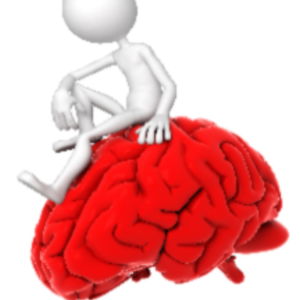Have you ever found yourself at the mercy of a situation, feeling like a leaf tossed in the wind? This is where the dichotomy of control steps in, offering a lifeline to clarity and calm in the chaos of life.
It's a simple yet profound principle that can revolutionise how we handle our daily struggles.
In this lesson, we'll unravel the layers of this Stoic wisdom, guiding you toward serenity in a world that often feels out of control.
Join us as we explore the roots, principles, and practical applications of the dichotomy of control and discover how this ancient philosophy remains strikingly relevant in our modern lives.
The dichotomy of control is derived from Stoic philosophy that distinguishes between things within our power and those without. It emphasises the importance of focusing our efforts and attention on what we can control and accepting what we cannot control.
According to the dichotomy of control, our thoughts, choices, and actions are within our control.
These are our internal states or virtues, such as judgment, desires, and values. We can choose how we respond to external events and circumstances.
On the other hand, external events and circumstances, such as the actions and behaviours of others, the weather, or natural disasters, are considered to be beyond our control.
These are referred to as external or indifferent things. According to the dichotomy of control, we should not place our happiness or well-being on things outside our control, as they are uncertain and can easily change.
The dichotomy of control encourages individuals to focus on developing their character, virtues, and wisdom, as these are within their power. By accepting what we cannot control and directing our efforts towards what we can control, we can find inner peace, freedom, and resilience in the face of adversity.
In psychology today, the dichotomy of control is often employed in cognitive-behavioural therapy (CBT) and other therapeutic approaches. By helping individuals recognise and differentiate between what is within their control and what is not, therapists aim to empower their clients to make positive changes in their lives and develop resilience in the face of adversity.
The principle says that peace of mind comes from focusing on and acting upon things within our control, like our beliefs, judgments, and actions. It also means accepting and letting go of things not in our power, like the actions and opinions of others.
Therefore, according to the Enchiridion (Handbook). Stoics thought there were only two things we had direct control over voluntary actions and how we think about things. Therefore, considering, Epictetus famously reasoned that people are disturbed not by events but by their judgments about their circumstances.
It is important to note that the dichotomy of control does not imply that individuals should completely ignore or disregard external circumstances or factors beyond their control. Instead, it emphasises the need to focus on what can be influenced and to develop a mindset that promotes acceptance and resilience in dealing with the uncontrollable aspects of life.
Introduction to the Dichotomy of Control
Key Takeaways
The Stoic Dichotomy of Control (DOC) distinguishes between what is within our control (opinions, motivations, desires, aversions, and actions) and what is not (body, property, reputation, office).
Epictetus, a Stoic philosopher, articulates the Dichotomy of Control, emphasising the importance of focusing on what we can control.
The Dichotomy of Control provides a practical framework for problem-solving by dividing situations into segments we can maintain and cannot.
The Dichotomy of Control has been adapted for modern times by William B. Irvine, who proposed a Trichotomy of Control.
The Dichotomy of Control offers timeless wisdom and can be applied to everyday life, helping us navigate challenges and cultivate serenity.
